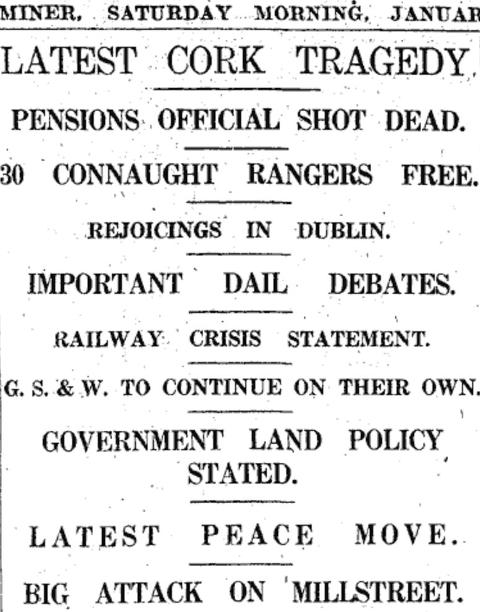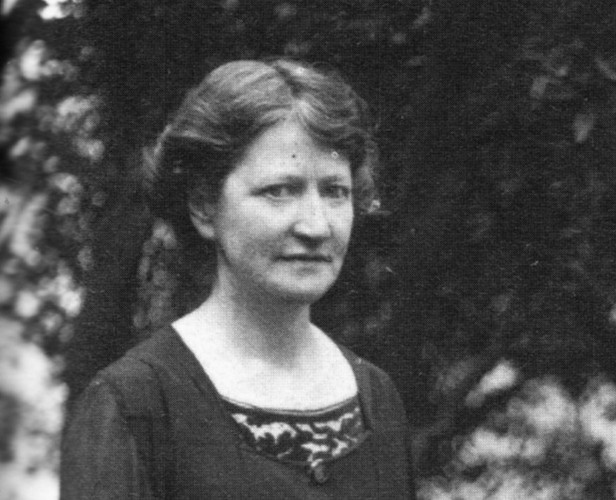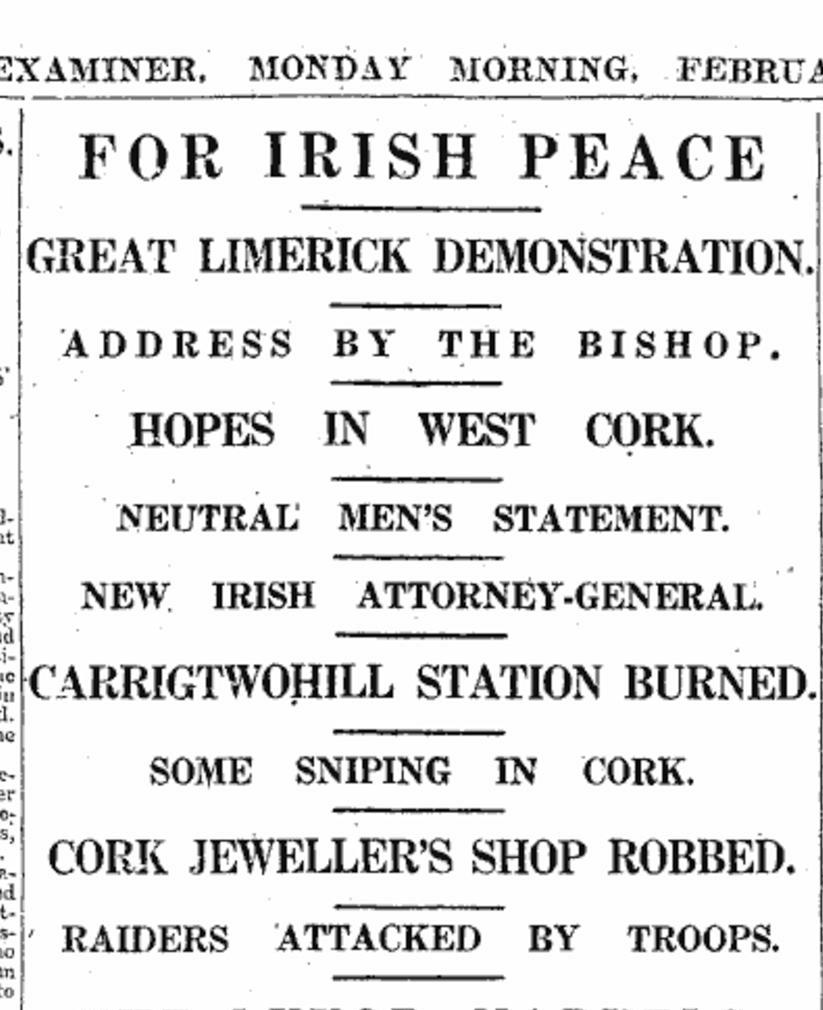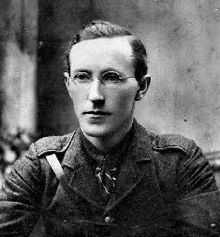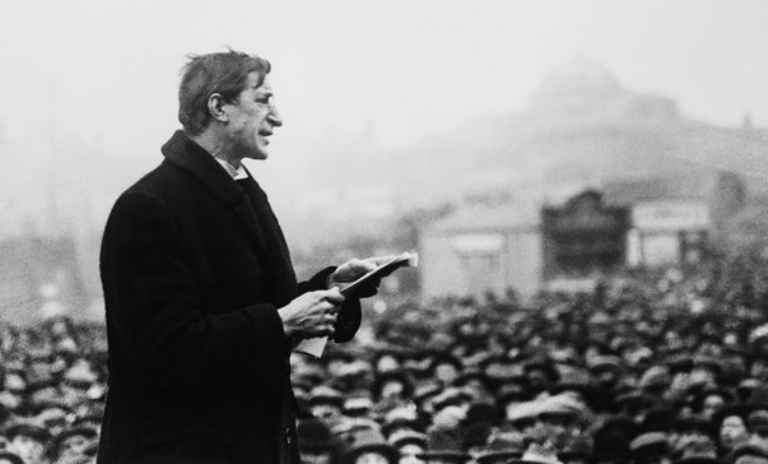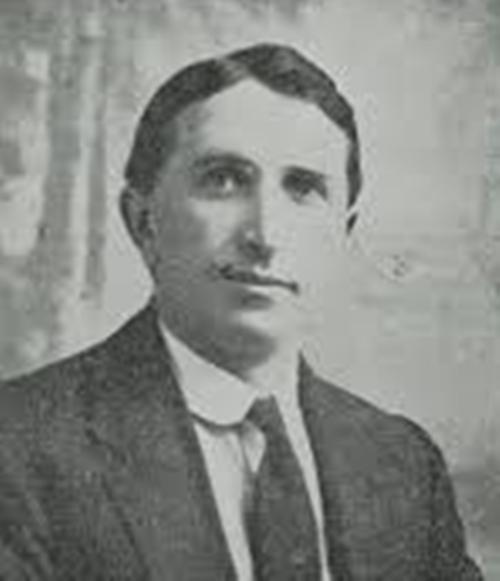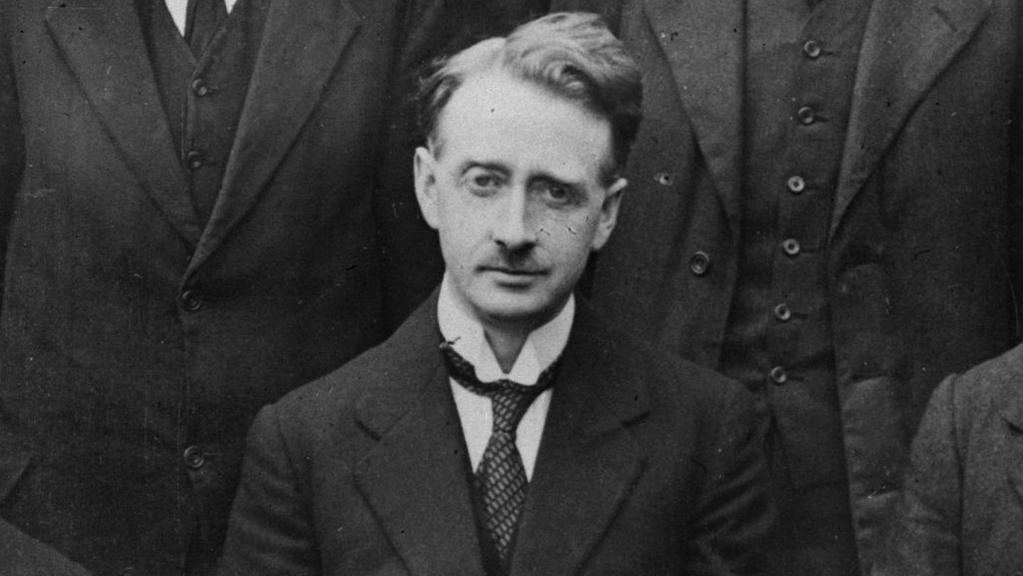1923
-
Shootings in Cork
Cork Examiner 6 January 1923
5 January 1923A man named Robert Finbar Tobin, with an address at St Mary’s Villas on Western Road, was shot dead near Cork Courthouse. The incident happened around 10pm while he was out walking with his wife. Three men who were walking behind the couple drew revolvers and fired several shots at point blank range. A priest from the nearby presbytery of St Francis’ Church arrived on the scene and administered the last rites. An employee of Cork City Pensions Office, Tobin had served with the National Army for a short time but had left that position some time before.
A skirmish in North Cork resulted in an Irregular being wounded. His name was Garrett McAuliffe and he was from the Banteer area. Two Irregulars were rumoured to have been killed in an attack on National Army post at Castlemartyr. Anti-Treaty forces launched a fierce and carefully-planned attack on National Army positions in Millstreet. After seven hours of fighting, they were repelled. A National Army soldier, Sergeant Major Jeremiah Mahony, was fatally wounded in the exchange.
The Cork City Pro-Treaty Executive sent a cablegram to President Cosgrave reading:
"Cork City Pro Treaty Executive, voicing the feelings of its citizens, send greetings and best wishes for the new year – Hon. Secs."
References
Cork Examiner 6 January 1923 -
Cumann na Mban members arrested
Annie MacSwiney
14 February 1923Several members of Irregular Cumann na mBan were arrested in Cork for possession of ammunition.
The individuals were named as Annie MacSwiney, Winnie Sheehan, Kathleen O’Brien, Kit Donovan, Annie O’Donovan, Eva Perry, J. Perry, M. Carey, M. Murphy, Miss Drummy, R. Barry, D. Barry, K. Murphy, N. Murray, Constance Murphy, Madge Donovan and Kate Flynn. Annie MacSwiney began a hunger strike in protest at her detention.
On the same day three Irregulars (named Crimmins, Casey and Hegarty) were arrested (unarmed) near Rochestown. Three more men were arrested at Glanworth, their names being Sheehy, Walsh and Wheeler. In the following days a sailor named O’Gorman was shot dead on the quays of Cork, after failing to obey an order to halt. On 19 February Macroom Barracks was attacked by Anti-Treaty Forces, with one soldier killed. A mail car was burned out near Blackpool and a postman was held up and had his uniform stolen.
Egg-packers in Cork were on strike at this time, although negotiations between workers and management were ongoing. News was announced that the Irish Government would be taking over Haulbowline Dockyard, which was welcomed by the 500 staff employed there.
References
Cork Examiner, 15 February 1923 -
Carrigtwohill Railway Station Destroyed by Fire
Cork Examiner 27 February 1923
26 February 1923Carrigtwohill Railway Station was burned by armed men. The fire was started at 10pm on Saturday, 24 February. The station house was totally destroyed. The goods store and residence were saved.
Sniping was reported at Cork Barracks and in Douglas. Hilsers’ Jewellers on South Main Street was robbed by three armed raiders. The men escaped, though one was shot in the shoulder by the military. In the preceding days Irregulars had been captured at Mallow, Clonakilty, Durrus and Bantry. A woman and her brother were arrested after arms were found at a house in Killeagh. A postman was held up by armed men near Mayfield in Cork. A similar incident occurred near Kinsale.
Annie MacSwiney was on the eleventh day of hunger strike at Kilmainham Prison. Her sister, TD Mary MacSwiney, sent a cablegram to the Pope in the hope of intervention. There was a protest on O’Connell Street in Dublin on 26 September. Among the speakers were Mary MacSwiney and Maud Gonne McBride. A large crowd attended, with banners calling for the release of Miss MacSwiney. They would be granted their wish on 1 March.
The New York police seized two tons of ammunition, 200 rifles and 25 machine guns, destined for shipment to Ireland.
References
Cork Examiner, 26 February 1923 -
Death of Liam Lynch
Liam Lynch
10 April 1923Liam Lynch was an officer in the Irish Republican Army during the War of Independence and he was the commanding general of the Irish Republican Army (the “Irregulars”) during the Irish Civil War
Free State troops, operating between Newcastle and Mount Melleray in the Knockmealdown Mountains, were fired upon by Anti-Treaty forces. Lynch and five other officers armed only with revolvers and automatics rushed up a glen towards the mountain. One of the officers Maurice Twomey stated, ‘We had to retreat up a bare coverless shoulder of mountain. This was the ‘Staters’ chance. About fifty of them had a clear view of us at between 300 and 400 yards range and they rattled away with their rifles as fast as they could work the bolts. Our return fire, with revolvers, was of course ineffective at that range; but as we staggered on up the mountain we fired an odd shot to disconcert their aim’.
The National Army soldiers returned fire, shooting IRA Chief of Staff Liam Lynch and wounded him in the stomach. He was initially mistaken for Éamon de Valera, due to their similarities of appearance; they were both tall and thin and wore glasses. Eamon De Valera and Dan Breen were in fact in Lynch’s company at the time, but managed to escape. It was during a respite from shooting that Lynch realised he was hit. Frank Aiken and Bill Quirke came to his aid. When they saw he was seriously wounded they made him as comfortable as possible and left him to be captured. After being examined by a doctor, Lynch was brought by ambulance to St. Joseph’s Hospital in Clonmel. He died there from his injuries shortly before 9pm that day.
Dramatic evidence was heard at the inquest in Clonmel on the following day. The killing of Liam Lynch came at a time when he was unwilling to compromise on his principles for the sake of peace, while Éamon de Valera sought to end the conflict, stating that “the phase begun in 1916 has run its course”. There was therefore a doubt about whether the Republicans had shot Lynch. At the inquest, however, it was found that the fatal bullet was fired from a Free State Army weapon and was admitted to by the Free State Army.
His last wish was to be buried alongside Michael Fitzgerald who died in Cork Gaol. General Prout of the Free State Army said this wish would be honoured. He is buried in Kilcrumper Cemetery near Fermoy. Professor Stockley, TD, declared at his funeral that “Ireland should be allowed to live her own life, and it was in that hope Mr. Lynch had lived and died”.
Liam Lynch’s death would prove to be a major loss for the Irregulars, both militarily and politically. He was succeeded by Frank Aiken.
References
Cork Examiner, 11 & 12 April 1923;
Ryan, Meda (2012) Liam Lynch: The Real Chief. Mercier Press: Cork -
The Civil War nears the end
Frank Aiken
30 April 1923The civil war had been going on for ten months when, on 27th April 1923, Éamon de Valera, for the Republican Government, and Frank Aiken, for the Army, signed a proclamation ordering the cessation of offensive operations by anti-Treaty forces from 30 April onwards. De Valera put forward six points which formed the basis on which he was prepared to negotiate for peace.
In summary, the six points stated that:
- The sovereign rights of the nation should be indefeasible.
- The Irish governmental authority, whether legislative, executive or judicial, was to be derived exclusively from the people of Ireland.
- The people of Ireland should be the ones to decide on disputed questions of national expediency and policy, and the majority of adult votes on this prevails. Violence as a result of disagreement on these matters is not permitted.
- No-one who subscribes to these principles of national right, order and good citizenship can be excluded from determining national policy.
- Citizens of the nation have the freedom to express political and economic opinions and to assemble in public meetings, and freedom of the Press also exists.
-The military forces of the nation are the servants of the nation and are compliant with the National Assembly.
Frank Aiken stated that all offensive operations had to be ceased from 30th April. He also added that all units had to ensure that they and their munitions were protected adequately.
References
Macardle, Dorothy (1951) The Irish Republic: a documented chronicle of the Anglo-Irish conflict and the partitioning of Ireland, with a detailed account of the period 1916-1923. Irish Press: Dublin -
Ceasefire announced
Eamon De Valera
28 May 1923Frank Aiken, realising that the Free State army had vastly superior resources, declared a ceasefire on 30 April. On Monday evening, 28 May 1923, Éamon de Valera stated in a message to the Soldiers of Liberty, Legion of the Rearguard, that arms could no longer be used successfully to protect the Republic and that a different means was needed to fight for the nation’s interests. Mr. Frank Aiken, Chief of Staff, asserted that arms were to be laid down and that foreign and domestic enemies had prevailed but that this did not mean that they had won.
De Valera, in his message, expressed how more sacrifices and any further use of arms on the part of the anti-Treaty forces would be against the national interest. He stated that those who had destroyed the Republic were victorious on this occasion but that the sacrifices of the irregulars who had died were not in vain. He reassured his men that they had kept the road to independence open. He continued by saying that after 7 years of fighting, people were exhausted and needed time to recover, and that when they were ready, they would support those on the anti-Treaty side, who had been more honest.
Mr. Aiken addressed all ranks, ordering his comrades to drop their arms and declaring that although the enemies of the Republic had been victorious, they had not won. He stated that what had happened so far would not stop the anti-treaty side from aspiring to independence. He asserted that a more honourable means of achieving independence would have to be found.
In the preceding days, Irregulars were arrested at locations in Ladysbridge, Boherboy, Upton and Douglas. A dump of Anti-Treaty literature was found in Timoleague. Six prisoners, one of whom was recaptured, had escaped from the detention barracks in Fermoy on 23 May. An Irregular named Mackey was shot dead by National Army troops on 27 May after trying to evade arrest. Across the country, large amounts of weapons and ammunition were seized and many Irregulars taken prisoner.
National troops seized cattle in West Cork and returned farms to their owners. Heavy penalties were imposed on trespassers.
References
Cork Examiner, 24-30 May 1923 -
General Election
J.J. Walsh
27 August 1923A general election was held on 27 August 1923
Voting in Cork city was described as quiet but heavy. Out of a total electorate of 66,700, over 43,000 men and women cast their vote. Five people were arrested for impersonation.
The candidates were:
J.J. Walsh (Cumann na nGaedheal) (Outgoing)
Professor Alfred O’Rahilly (Cumann na nGaedheal)
R.H. Beamish (Progessive Association)
A O’Shaughnessy (Progessive Association)
Mary McSwiney (Sinn Féin) (Outgoing)
Dr C. Lucey (Sinn Féin)
Alderman F. Murray (Sinn Féin)
T. Corcoran (Farmers’ Union)
R. Day (Labour) (Outgoing)
R.S. Anthony (Labour)
Alderman W. Kenneally (Labour)
Captain Collins (Independent)
Sir John Scott (Independent)
(Cork Examiner, 28 August 1923)
The quota was 7,102.
J.J. Walsh was the first candidate elected (receiving 2.5 times the quota) followed by Professor O’Rahilly and R.H. Beamish. After vote transfers Mary McSwiney and A O’Shaughnessy were also elected. (Cork Examiner 31 August 1923).
In East Cork, John Daly (Labour), M.J. Hennessy (Cumann na nGaedheal) and D.R. Kent (Sinn Féin) were elected , followed by John Dineen (Farmers’ Union) and Thomas O’Mahony (Cumann na nGaedheal). (Cork Examiner 1 September 1923).
In West Cork, Cornelius Connolly (Cumann na nGaedheal), John Buckley (Sinn Féin), Timothy O’Donovan (Farmers’ Union), John Prior (Cumann na nGaedheal) and Timothy Joseph Murphy (Labour) were elected.
The overall election result was a victory for Cumann na nGaedheal, who won 63 seats and went on to form the next government.
References
Cork Examiner, 24-31 August 1923 -
Irish Free State enters League of Nations
W.T. Cosgrave
10 September 1923The Irish Free State was admitted to the League of Nations by a unanimous vote on 10 September. In his speech, President W.T. Cosgrave, speaking first in Irish then switching, declared to enthusiastic cheers from the delegates of other nations:
“Today, with all the nations of this assembly, Ireland joins in a solemn covenant to exercise the powers of her sovereign status, in promoting the peace, security, happiness and well-being of the human race.”
In Cork, a dockers’ strike was underway and one week’s notice was issued to employees.
References
Cork Examiner, 11 September 1923
